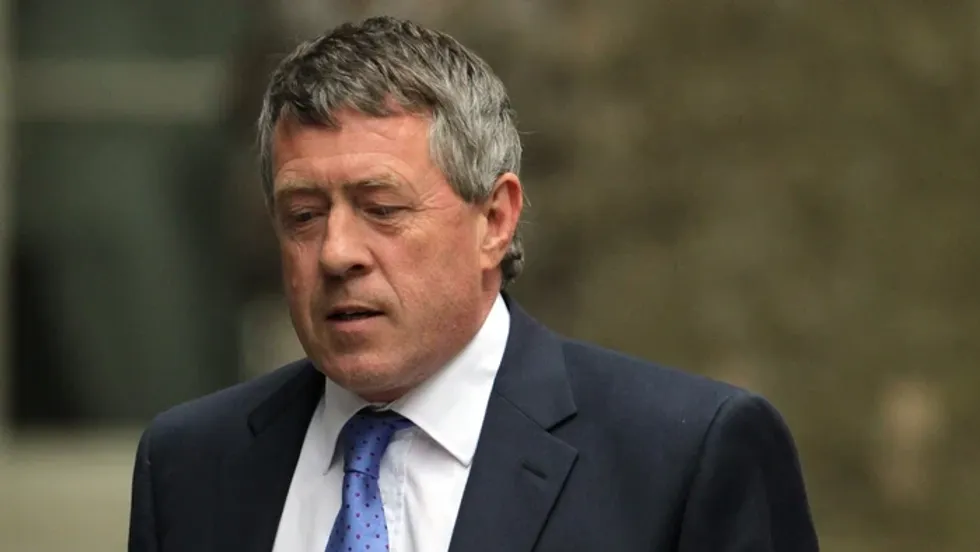A NEW independent commission to improve cohesion would engage across all nations and regions of the UK by moving beyond Westminster-centric discussions and include more diverse voices, the director of British Future thinktank has said.
Sunder Katwala said building confidence across different groups will be a priority, as economic pressures and tensions due to Middle East conflict have polarised communities in the UK.
His comments came as it emerged earlier this week that a cross-party commission will be set up to mend societal divisions across Britain. It will be led jointly by Sir Sajid Javid and John Denham, both former cabinet ministers.
“Six months after the (Southport) riots, which saw unprecedented scenes of racist violence and disorder, we face multiple challenges to social cohesion,” Katwala told Eastern Eye on Monday (3).
“The ongoing Middle East conflict has strained faith relationships in Britain, while sharp economic pressures continue to affect communities.”
The commission will be coordinated by the Together Coalition in partnership with British Future and Belong and will begin work this spring.
Brendan Cox, the husband of Labour MP Jo Cox, who was murdered in June 2016 in her west Yorkshire constituency, established the coalition.
Katwala told Eastern Eye, “While previous governments have taken constructive steps – such as the Cantle review following the 2001 disturbances and John Denham’s work as communities secretary – these responses have typically been reactive rather than strategic.
“Similarly, Brexit served as a wakeup call about societal divisions, leading to important integration policies and pilot programmes.”
In his view, UK governments of all parties have historically responded to crises without maintaining sustained, strategic action. Katwala added, “Now, with increasing economic pressures, rapid technological change, and an accelerating pace of social transformation, we need a long-term strategy. This must build increased confidence in our growing diverse society – ensuring fair chances, equal stakes, shared voices, and mutual respect across different communities.
“That’s the fundamental challenge for this decade and beyond.”
According to reports, the new commission will seek to understand how to strengthen community links, cohesion and resilience, while developing recommendations for policymakers and a collective vision for the future.
Shalni Arora, co-chair of the Belong Network, said, “Six months on from the summer riots, this commission could not come at a more pivotal moment for social cohesion in the UK. The country feels increasingly polarised, and we are in desperate need of an honest conversation about where we go next.
“Belong knows from our work with local authorities, charities, and faith networks that there are already those doing brilliant work on the ground in their local communities, but this commission offers a chance to join the dots.
“I am glad to see cross-party support for this project, which will hold a mirror to society and amplify everyone’s voices, including those who feel unheard, hopefully, leading to a more united Britain.”
Katwala pointed out that the country has managed its growing diversity relatively well, compared to other democracies, but cautioned that as the pace of change accelerates, “we need stronger foundations and strategy”.
Asked about the role of migration in social division, he said, “While it can contribute greatly to society, we need to build broad confidence in managing it fairly for both newcomers and existing communities. This has been a polarising issue, with people from minority and majority backgrounds, younger and older generations, and different political views all expressing frustration with the current debate.

“Cohesion happens among people at a local level, in the places we live, through individuals, local groups, civic organisations, and education. The foundations of social cohesion include economic and education status, confidence in national and local government, ensuring everyone’s voice counts, and maintaining trust and respect between different groups.”
Katwala said progress has been made across generations in this regard; however, there are still generational and geographical divides to bridge. “There tends to be more confidence in places with higher diversity, such as London and other big cities, but spreading this confidence across the entire country remains a challenge,” he added.
A recent report by the Fairness Foundation highlighted wealth inequality harms social cohesion, weakens public services and institutions, and reduces trust in the government and democracy. The thinktank warned social cohesion could decline or even collapse if people lose faith in democracy, face economic crises, or experience environmental disasters.
Released in December, the UK Community Life Survey found that about 81 per cent of adults believe people from different backgrounds in their local area get along well, suggesting a largely positive view of community harmony in the UK.
The survey also revealed that a strong sense of belonging to one’s neighbourhood was more common among Pakistani (71 per cent), Bangladeshi (69 per cent), Indian (63 per cent), and white British (63 per cent) adults.
Katwala said social media can sometimes be a force for good, but it can also drive and amplify division.
He added, “Many people feel that disorder and the spread of misinformation on social media are problematic. The challenge is that we may see weaker responses due to changes in platforms and political shifts, such as those in the US.
“Social media brings both challenges and opportunities, but it certainly intensifies the pressure of events.”
Katwala was optimistic about the purpose of the commission. “It is a crucial moment with a great opportunity. It is important to involve people in shaping a vision for society – one where everyone shares in shaping the future. It’s a great chance to get things right. Reaching out and engaging as many people as possible, including community leaders, is key to developing and sharing what the future should look like.”
The commission is expected to publish its report by the end of 2025, incorporating evidence from experts, academics, and polling on public attitudes.


















